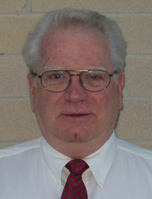Some Reflections of a Participant in Pentecostalism and Science

Paul Elbert is a physicist-theologian and New Testament scholar.
We may think of God as the leader of a cosmic community.1 But God is not encountered only in spectacular and physically improbable or counter-intuitive historical events; he is also detected in his manifestation of human experience. One of the distinctive features of the NT documents is the description afforded the interaction of the God, the heavenly Jesus, and the Holy Spirit with Christians.2 Global Pentecostalism3 and the international charismatic renewal4 are familiar with Christian experience that is evidently interventionist and that thereby would add energy to the universe.5 While pneumatological action can have a hidden character, such activity is perhaps more consistent with the God’s decision to be invisible than with an intrinsic reticence of the nature of the Holy Spirit’s presence. The creative activity of the Spirit in personal reception of the gift of the Holy Spirit, in the sharing of interpersonal spiritual gifts, or in interior giftedness via the Johannine chrisma demonstrates an evident experiential or observable manifestation. For this reason, Pentecostals should not feel constrained to conform to theories that God will not and does not interact with physical reality and that there is no room for the Holy Spirit in the continuing dialogue between religion and science. Rather, they might contribute to the picture of spectacular non-natural actions of the Spirit and to the probability of creative work of the Spirit in past Earth history and terrestrial life.6
In this dialogue,7 Polkinghorne suggests that “the most grievous absence from this conversation is that of the theologians.”8 Exceptions, for example, like Moltman’s conclusion that theology and science share a common wisdom,9 Marcum’s observation that “Christian theology without the input of the natural sciences may become imaginary,”10 and Yong’s recognition of the possibility of a new theological paradigm that grants to the book of nature and to science an authentic role in a pneumatological theology wherein a diversity, distinctiveness and integrity of voices may be “as heard originally at Pentecost to be divinely ordained for the glory of God,”11 are all encouraging developments. Nevertheless, Polkinghorne is no doubt correct that twentieth-century theology has been, for the most part, “conducted from within ghettoes walled off from scientific culture.”12
I see no good reason why Pentecostals need be “walled off” from or unaware of science and technology. The way forward is to fully understand that it can be God’s calling and a blessing to be a Christian within a scientific career.13 Pentecostal-based educational institutions need to move rapidly beyond the idea of simply offering science courses as a means to get students into medical school or just to meet some minimum mandated requirement of accrediting agencies. In this regard, the chemistry department here at Lee University has made a great deal of progress with undergraduate research so as to offer a good major. While science is expensive to teach, Pentecostal education needs to step up to the plate and attempt to boldly enter the main stream of American scientific education with more faculty, much more emphasis on academic production than on the acquisition of academic history, and vigorous participation in research. In my view, this is more important for Pentecostals and their potential place of influence in the thinking community than their current effort to educate the masses. The fact that the Church of God Theological Seminary offers a course in theology and science–which, in my opinion, given the urgency for Pentecostal ministers to be at least acquainted with the experimental discoveries of modern science, might either be made mandatory or offered as a part of the theological requirement–is also a positive sign. Pentecostals will also find that the experimental discoveries of modern science are both eminently preachable and not at all biblically threatening. In fact, I have found these two categories, the book of nature and written revelation, to be quite harmonious.14
Category: In Depth


